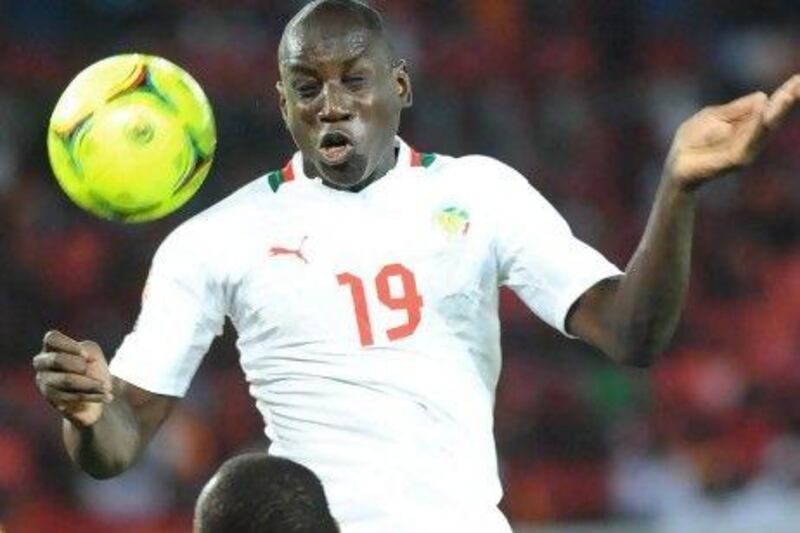Tickets for the 29th African Cup of Nations finals went on sale in South Africa earlier this month.
Organisers seemed anxious. The tournament will take place in superb stadiums, erected for the successful 2010 World Cup, mostly in provincial cities across the republic, but one of the concerns behind a pricing band that begins at a modest R50 (Dh21) is to avoid empty seats.
South Africa were hardly helped in their efforts to nourish interest, three months ahead of the tournament's start, by the announcement that Steven Pienaar, their best footballer, would not be participating.
Pienaar, having an excellent season with Everton in the English Premier League but wearying of his tasks as captain of an inconsistent Bafana Bafana, has just retired from international football.
The notoriously awkward timing of the Cup of Nations, in January and February, in the middle of the European club campaign, was a factor, as it is for a number of star Africans.
Ghana are reconciled to the fact players like AC Milan's Kevin-Prince Boateng and Real Madrid's Michael Essien prefer to stay in Europe than voyage anywhere with the Black Stars. At least Ghana will probably be in South Africa.
As the hurried final qualifying for the 15 remaining places - the 16th belongs to the hosts - is completed this weekend, uncertainty grips several of continent's big names.
While Ghana need only defend a 2-0 lead in Malawi in their second leg of their last qualifier, heavyweights like Nigeria and the reigning champions Zambia face fraught assignments.
Cameroon, meanwhile, have huge ground to make up, and the pairing of Ivory Coast and Senegal in a play-off for one berth in the finals guarantees that South Africa 2013 will be missing at least one of Africa's most dazzling strike forces.
The Ivorians, spearheaded by Didier Drogba and Gervinho, lead Senegal 4-2 after a dramatic first leg in Abidjan.
In Dakar, the Senegalese capital, there is a belief that if the home team's gifted forwards Demba Ba and Papiss Cisse, both of Newcastle United, get the right service, that deficit can be overcome.
The play-off manner of qualifying is unusual, but necessary. Normally, Cup of Nations finals take place every two years, in even numbered years.
A switch to odd numbered years - 2013, 2015, 2017 - meant the Confederation of African football had to devise a swift method of finding its finalists.
They abandoned mini-leagues and opted for two-legged, sudden death ties. When the dust settles after today and tomorrow, there are likely to be some underdogs roaring.
Take the Cape Verde Islands. The footballers from this Atlantic archipelago have never reached a Cup of Nations finals. Yet they have travelled to Cameroon, the four-time winners of the trophy, holding a 2-0 lead over the so-called Indomitable Lions.
Cameroon sacked their head coach, the Frenchman Denis Lavagne, as a result of the shock first-leg defeat in Praia.
Nothing new here: Cameroon appoint and discard managers like sweet wrappers.
They are also careless with their superstars. Samuel Eto'o, the world's highest-paid footballer with his Russian club Anzhi Makhachkala, will tomorrow play his first international match of 2012, having ended his boycott of the Lions to try to save them.
Up against him, the likes of Djaniny, a 21-year-old striker whose journey from the obscurity of Cape Verdean junior football to a contract with Benfica in Portugal, which includes a stint studying alternative energy in the Azores, a developing apprenticeship on loan at the Portuguese first division club Olhanense and one of the goals that have put Cape Verde - population less than 500,000 - on the verge of a historic triumph.
The so-called Blue Sharks threaten, in the words of the former Indomitable Lion Roger Milla, hero of the 1990 World Cup, "the very national pride of Cameroon".
Cape Verde are not the only rising minnows. The impoverished Central African Republic, another nation with no previous at Cup of Nations finals, have already - in a pre-qualifying tie - knocked out Egypt, the African champions three times between 2006 and 2010. They take a 1-0 lead to Burkina Faso tomorrow.
Liberia are drawing 2-2 as they take on Nigeria, Africa's most populous nation. Uganda, 34 years since their last Cup of Nations finals appearance, are at home to the title-holders Zambia, with only a 1-0 score to reverse. Mozambique lead the once-mighty Morocco 2-0.
The valour of these upstart teams is admirable, but in South Africa, they want enough of the VIPs of the game to reach the finals that they spark local interest.
Follow us
[ @SprtNationalUAE ]






